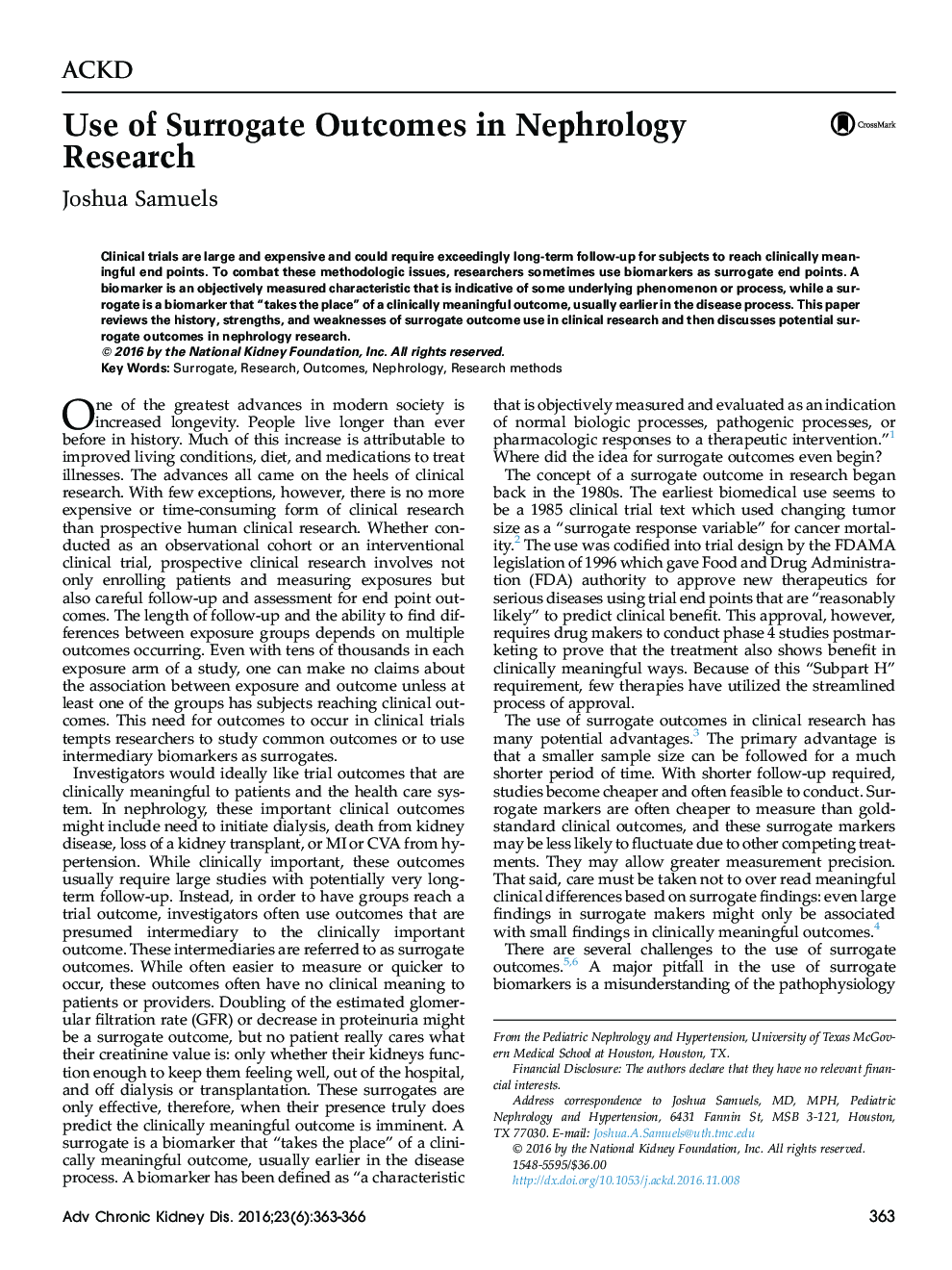| Article ID | Journal | Published Year | Pages | File Type |
|---|---|---|---|---|
| 5685249 | Advances in Chronic Kidney Disease | 2016 | 4 Pages |
Abstract
Clinical trials are large and expensive and could require exceedingly long-term follow-up for subjects to reach clinically meaningful end points. To combat these methodologic issues, researchers sometimes use biomarkers as surrogate end points. A biomarker is an objectively measured characteristic that is indicative of some underlying phenomenon or process, while a surrogate is a biomarker that “takes the place” of a clinically meaningful outcome, usually earlier in the disease process. This paper reviews the history, strengths, and weaknesses of surrogate outcome use in clinical research and then discusses potential surrogate outcomes in nephrology research.
Related Topics
Health Sciences
Medicine and Dentistry
Nephrology
Authors
Joshua Samuels,
